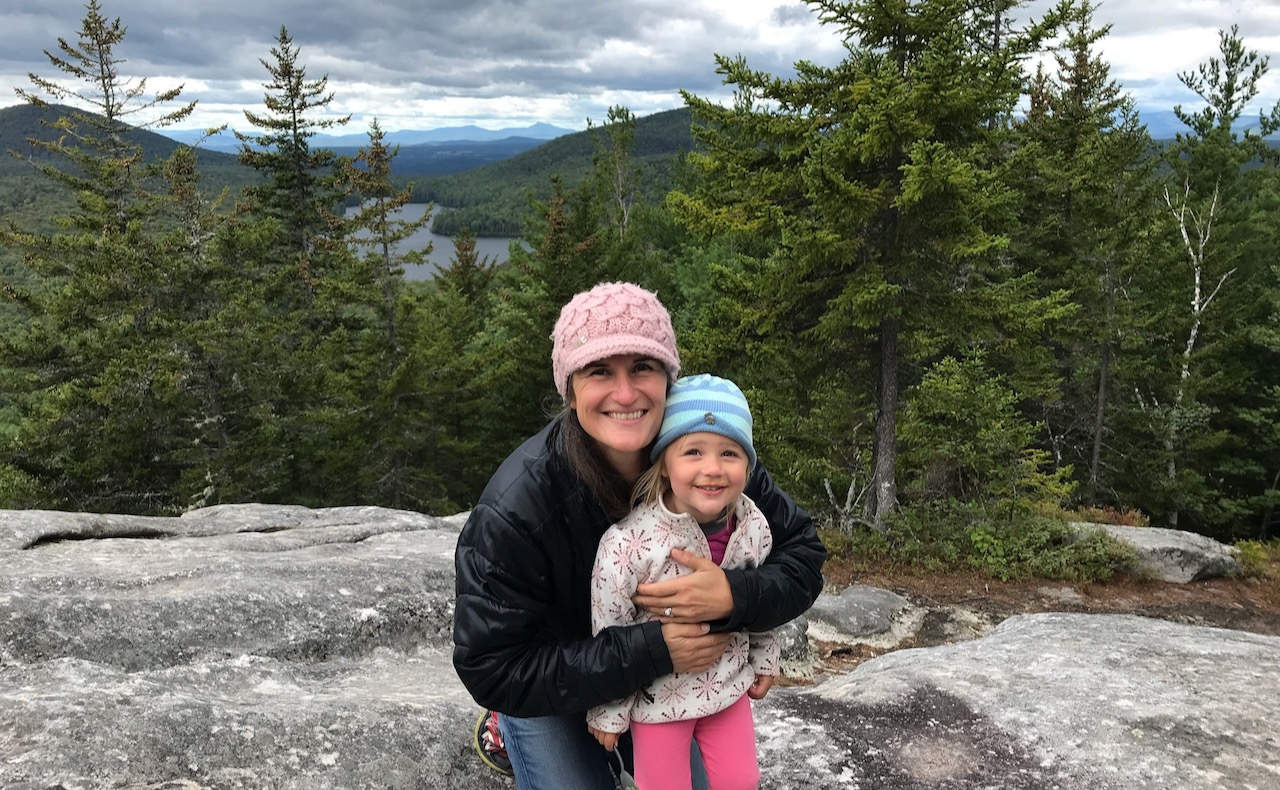
I was diagnosed with Hashimoto’s disease when I was 15. Until recently it didn’t seem to impact my life all that much.
In fact, my biggest challenge was convincing my doctor to give me a six-month prescription prior to extended travel so I wouldn’t have to worry about refills while I was gone.
Or so I thought that was my biggest challenge.
It turns out I’d had symptoms all along that I didn’t necessarily have to be living with.
Heart Palpitations
At 35, I noticed heart palpitations. I went to a doctor who said I was fine based on my tests and that my thyroid medication was the right dose. So I went to a naturopath who specializes in thyroid disease. She helped me adjust my diet and told me to cut out gluten, which I did. I also cut back on sugar and caffeine.
For the first time in my life, I knew what it was like to wake up with energy.
I had jump-out-of-bed, ready-to-start-the-day kind of energy!
That’s when I realized things like persistent fatigue and brain fog are not normal.
Gluten and Hashimoto’s
I was gluten free for three years and felt so good that I never did follow-up blood work to see if my antibody levels reflected my outward expression of health. I do know, however, that a month of gluten-free eating got my antibody levels from the 700s down to the 500s (normal levels are <60).
When I got pregnant, I stopped restricting my diet. If I craved something, I figured the baby wanted it. I ate things like crackers, bread, and pasta, which helped manage my nausea.
Then I became a sleep-deprived mom and didn’t pay much attention to anything outside of my happy little love-filled orb.
I had another kid and kept on eating all the things, including gluten.
Additional symptoms started to appear. I often say that the second pregnancy was hard on my body but I wonder if my body was simply asking for a reset.
New Hashimoto’s Symptoms
When my youngest was two, I started noticing symptoms beyond fatigue. I had…
- Achy hips and legs, like REALLY achy, hard-to-stand-up-from-the-floor achy
- Low energy
- An off-kilter mood
- A complexion akin to a dried apricot
- A lipoma in my leg
- A nodule on my thyroid
- I also had a bout with numbness on one side of my body. The numbness lasted about 5 days and might have been related to a vitamin D deficiency.
It felt like my body was in a fight-or-flight state.
For the numbness, I went to a neurological specialist who wanted to give me an MRI to look for MS. Instead I started an aggressive dose of Vitamin D and decided to see if the symptoms came back. It’s possible I was scared or in denial, but I also just felt like that’s not where I should focus my attention.
Of everything that unfolded that year, the nodule was my wake up call.
The Thyroid Nodule
In December of 2019, I got an ultrasound. The nodule was given a TI-RAD rating of 3, which is the lowest rating in which they still recommend a biopsy. I got the biopsy and a $1200 hospital bill only to be told the results were inconclusive.
I followed up with an otolaryngologist (which I can’t pronounce) who wanted to perform surgery, and with an endocrinologist (which I can pronounce), who helped me make sense of the information I received.
On the alternative side, I read a lot on my own. I found a doctor of functional medicine who is also an MD and specializes in autoimmune diseases.
Based on what I learned, I changed a lot of things about my diet. This led to a pretty big detox that gave me a small peek into what depression could be like.
I called a friend and wept into the phone. Crying, it turns out, is very cleansing.
I opened up to more people. At first I picked my confidants very carefully because I was emotional and scared about what might or might not be true. Once I came out of the intense detox, however, I was able to talk more easily to other people.
Connecting with others in that way was so important in my healing journey. It not only provided me comfort but also tools and resources from places I never expected.
I learned, for example, that my neighbor went through something similar five years prior. She gave me a recommendation for a local endocrinologist who is willing to run more than just the standard TSH test. It’s so helpful to have a doctor who looks at a broader picture of health.
General Notes About Hashimoto’s
From all the doctor appointments and medical tests, books and articles, and conversations with family, friends and neighbors, I compiled some of my big-picture takeaways.
- Hashimoto’s disease is described as a condition in which your immune system attacks your thyroid gland.
- Doctors are not all that concerned with thyroid issues, even thyroid cancer. They say it is slow to spread. When I first found out that I had to get a biopsy (scary word!), my doctor tried to ease my concern by telling me, “People don’t die from thyroid cancer.” Because of this there was no urgency on the medical side to get answers more quickly.
- Thyroid disease is not a popular medical research topic so there’s not a lot of new information about it. This is probably because there is little urgency around thyroid issues in general.
- Exploratory thyroid tests don’t seem to be that accurate. It took me 10 months to get a conclusive result after first discovering the nodule. I also learned that a positive result from that type of test came with a 50% chance of cancer, yet it’s still standard procedure to remove the thyroid gland.
Alternative Views on Hashimoto’s
Due to the limited information in the medical realm, a lot of people turn to alternative medicine, including myself. Here are some of the things I took away from my research there.
- Izabella Wentz, the “Thyroid Pharmacist” and author of Root Cause, says three things need to be present for Hashimoto’s to develop: a genetic predisposition, inflammation or a leaky gut, and a trigger such as a virus or toxins in our environment.
- Anthony William (ahem, a medical medium) says that inflammation is not necessarily one of the precursors of Hashimoto’s; it’s the result of your immune system going into fight mode.
- William further asserts that your immune system is NOT in fact attacking your thyroid. He says it’s going after a virus, most likely the Epstein Barr virus, that’s hiding in your thyroid cells. This struck me because I had mono the same year I was diagnosed with Hashimoto’s. Plus his theory that the body is not attacking itself really resonates. If that’s true, it means my body is NOT in fact malfunctioning, rather it’s doing exactly what it’s designed to do—attack an invading virus.
- This leads me to think that flare-ups, such as the one that led to my thyroid nodule, happen as a result of the virus coming out of hiding.
- A lot of the alternative treatments revolve around dietary and lifestyle changes that can help calm your system and get the antibody levels down to a normal range. For people with persistent symptoms you can go down a rabbit hole of tests looking for anything that might be out of balance, including hormones.
- Finally, I learned that vitamin D plays SUCH a crucial role in SO many aspects of our health.
One of the biggest lessons, however, is that it helps to talk about what’s going on. Not only to process some of your emotions but also because sometime people say, “oh, this happened to me,” and then end up providing you with comfort and resources.
What Comes Next
Prior to my second biopsy I met with the otolaryngologist (he performed the 2nd biopsy but not the first). At that appointment he ran a quick ultrasound just to get a look at what he would be sticking a needle into. During that ultrasound, he saw something concerning so he sent me to get a CAT scan. Whatever he saw turned out to be “artifact” but it scared the crap out of me until I was cleared.
I went back to just worrying about the original issue.
I wanted answers, but a month after my 2nd biopsy, I still didn’t have any. My endocrinologist tracked down my sample and discovered it was sent to the wrong lab. A month after that (and 10 months after finding the nodule) I FINALLY got word that my nodule was benign.
Thank goodness!
I am relieved but I also just want the dang thing to go away.
My ultimate goal is to get my antibody levels back into a normal range and hopefully shrink the nodule. I plan to continue with my diet and lifestyle adjustments in an effort to find the last few pesky things that might still be causing a reaction.
Over the last 12 months I got my antibody readings from the high 300s down to the low 200s (normal is <60). I hit a bit of a plateau but plan to make a few new adjustments to see if they help.
If you would like to learn more about the things I’ve done, and what I plan to try next, you can read about it in the post about my hypothyroidism diet and health plan.
Of all my takeaways, the most important one is this: seemingly small symptoms are indicators that something is off. Don’t wait until there are a lot of otherwise easy-to-ignore symptoms to make a change. All those “minor” things could create a much bigger picture of poor health in the long run.
Environmental triggers account for 70% of autoimmune cases. In an effort to reduce those triggers in my home, I use essential oils to make non-toxic versions of cleaning solutions and beauty products. Visit michellevalenti.com/essential-oils/ to learn more.
